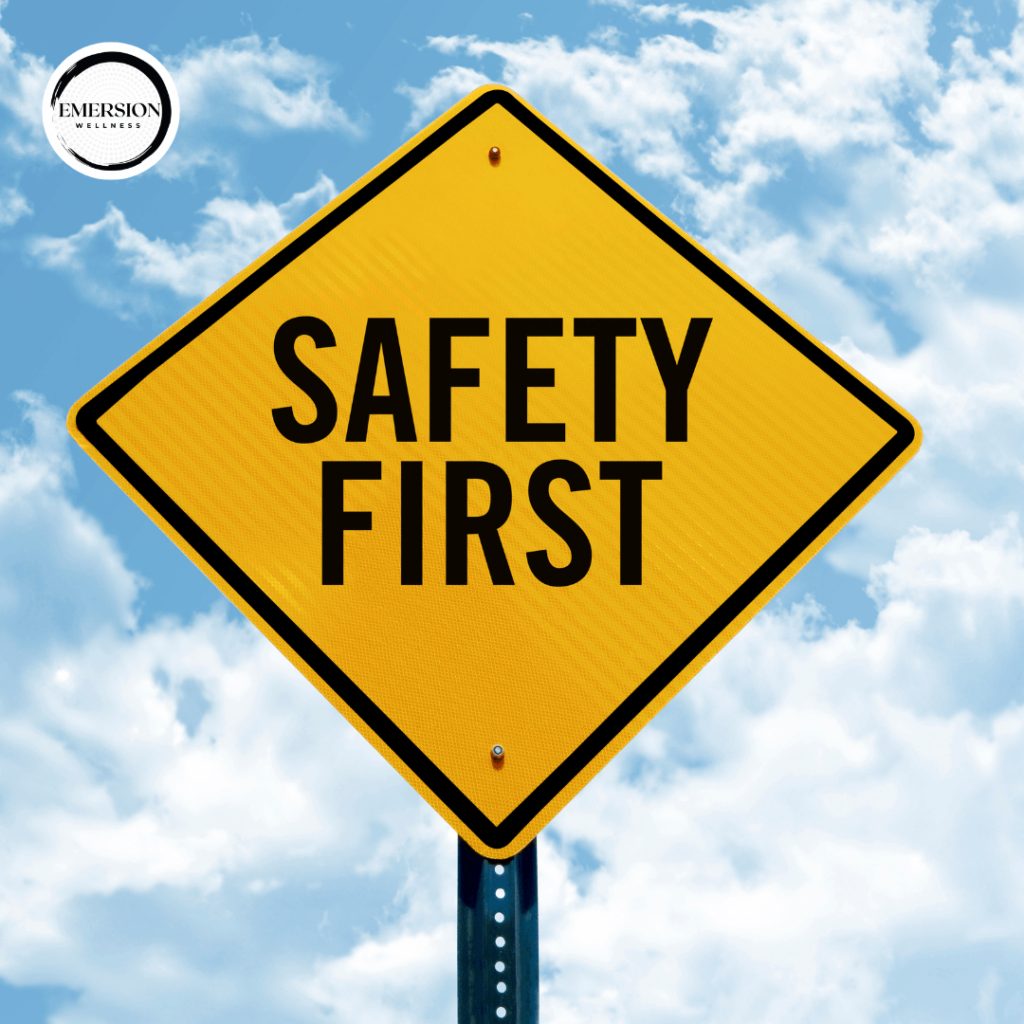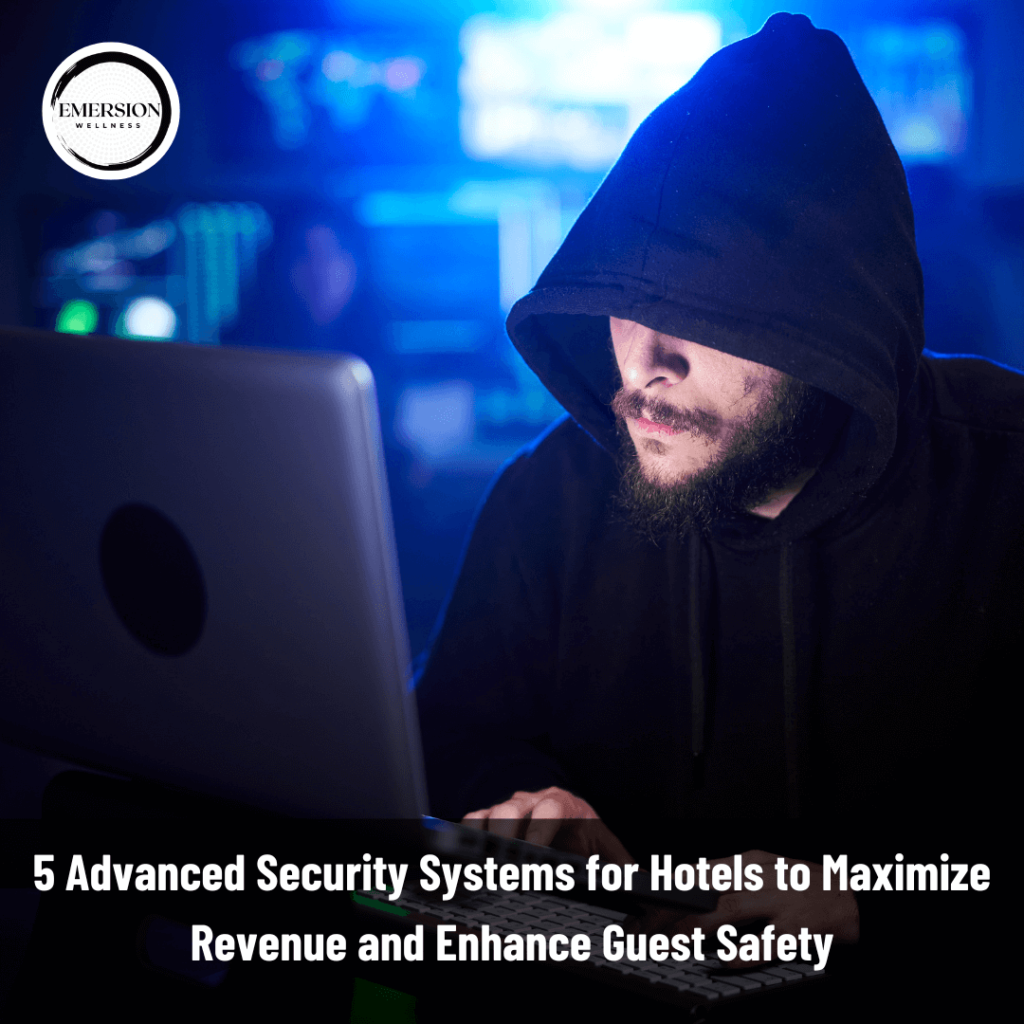Security systems for hotels are a critical investment that ensures guest safety, enhances trust, and ultimately drives revenue. As a hotel revenue-generating specialist at Emersion Wellness, I have seen firsthand how effective security measures can transform a hotel's reputation and profitability. This article explores advanced security systems for hotels, providing practical advice and real-life examples to help you implement the best solutions for your property.
Critical Takeaways
- Advanced security systems directly impact guest satisfaction and revenue.
- Integration of technology is essential for modern hotel security.
- Regular training and updates are crucial for maintaining high security standards.
- Comprehensive security strategies include physical, digital, and procedural elements.
- Emersion Wellness offers expert guidance on innovative security solutions and revenue-generating strategies.
The Importance of Security Systems for Hotels
Enhancing Guest Trust and Satisfaction
Guest trust and satisfaction are paramount in the hospitality industry. Ensuring that guests feel safe and secure in their rooms builds trust and satisfaction, leading to positive reviews and repeat visits. According to the American Hotel & Lodging Association, 94% of guests consider room security when choosing a hotel.
Preventing Theft and Vandalism
Effective security systems can prevent theft and vandalism, protecting both guests' belongings and hotel property. This not only reduces financial losses but also enhances the overall guest experience. A survey by Statista found that 25% of hotel thefts occur in guest rooms, highlighting the need for robust security.
Legal and Liability Issues
Hotels have a legal obligation to ensure the safety of their guests. Failing to provide adequate security can result in legal action and significant financial penalties. Implementing comprehensive security measures mitigates these risks and demonstrates a commitment to guest safety.
Boosting Revenue Through Security
Enhanced security systems can directly impact a hotel's revenue. Guests are more likely to choose a hotel with a reputation for safety, leading to higher occupancy rates. Additionally, improved security can reduce insurance premiums, contributing to overall cost savings.
Case Study: A Hotel's Success Story
A mid-sized hotel in San Francisco implemented a comprehensive security system upgrade, including advanced locks, surveillance cameras, and staff training. Within a year, the hotel saw a 30% increase in positive guest reviews and a 15% boost in occupancy rates, highlighting the tangible benefits of robust security measures.

Also, see Robust Security Department Hotel And Proven Strategies for Enhancing Revenue
Essential Security Systems for Hotels
High-Quality Locks and Access Control
Installing high-quality locks is the first step in ensuring room security. Electronic key card systems and biometric locks offer enhanced security compared to traditional locks. Regular maintenance and updates are essential to ensure these systems function optimally.
Surveillance Cameras
Surveillance cameras placed in strategic locations, such as hallways and entry points, can deter criminal activity and provide valuable evidence if an incident occurs. Ensure that cameras are regularly checked and maintained for optimal performance.
Security Personnel
Well-trained security personnel are crucial for effective room security. Regular training sessions on emergency procedures, conflict resolution, and technology use ensure that security staff are prepared to handle any situation professionally and efficiently.
Guest Education
Educating guests about room security measures can significantly enhance their sense of safety. Provide clear instructions on using locks, safes, and other security features. This proactive approach can prevent incidents and improve guest satisfaction.
Real-Life Example: Effective Security Implementation
A luxury hotel in New York implemented advanced locks, surveillance systems, and regular staff training. Guests reported feeling safer, and the hotel experienced a 20% increase in repeat bookings. This demonstrates the impact of comprehensive security measures on guest trust and revenue.
Leveraging Technology for Hotel Security
Smart Locks
Smart locks offer a modern, efficient way to secure hotel rooms. These locks can be controlled via mobile apps, providing guests with convenient and secure access. Additionally, smart locks can generate audit trails, enhancing security oversight.
Mobile Key Technology
Mobile key technology allows guests to use their smartphones as room keys. This reduces the risk of lost or stolen key cards and provides a seamless check-in experience. According to a report by Hotel Management, hotels using mobile key technology see higher guest satisfaction rates.
IoT Devices
The Internet of Things (IoT) offers numerous applications for room security. Smart sensors can detect unauthorized entry, monitor room conditions, and alert staff to potential security breaches. Integrating IoT devices into the hotel’s security system enhances overall efficiency and safety.
AI and Machine Learning
AI and machine learning technologies can analyze surveillance footage in real-time, identifying potential threats and alerting security personnel. This proactive approach ensures timely responses to security incidents, enhancing overall safety.
Cybersecurity Measures
With the increasing reliance on digital systems, cybersecurity is a critical aspect of room security. Implementing robust firewalls, encryption, and secure Wi-Fi networks protects guest data and prevents cyberattacks. Hotels that prioritize cybersecurity see fewer data breaches and higher guest trust.
Staff Training and Emergency Procedures
Regular Training Sessions
Regular training sessions ensure that security personnel are up-to-date with the latest security protocols and technologies. This includes training on emergency response, conflict resolution, and the use of security equipment.
Developing Emergency Response Plans
An effective emergency response plan is essential for guest and staff safety. This plan should cover various scenarios, including fires, natural disasters, and medical emergencies. Regular drills and training ensure that everyone knows their roles and responsibilities during an emergency.
Conducting Safety Drills
Safety drills help prepare staff and guests for potential emergencies. Regularly scheduled drills, including fire evacuations and lockdown procedures, ensure that everyone is familiar with the protocols and can respond quickly and calmly.
Providing Clear Communication Channels
Clear communication channels are vital during emergencies. Ensure that staff and guests can easily communicate with security personnel and receive timely updates. Two-way radios, intercom systems, and mobile apps can facilitate efficient communication.
Ensuring First Aid Readiness
Having well-stocked first aid kits and trained personnel on-site is crucial for handling medical emergencies. Regularly check and replenish first aid supplies, and provide staff with first aid training to ensure they can respond effectively to medical incidents.
Physical Security Measures
Implementing Perimeter Security
Perimeter security is the first line of defense against unauthorized access. Fencing, security gates, and surveillance cameras around the property perimeter can deter intruders and enhance overall security.
Securing Entrances and Exits
Controlled access to entrances and exits is crucial for maintaining security. Security personnel or electronic access systems should monitor these points to prevent unauthorized entry. A study by the International Journal of Hospitality Management found that hotels with controlled access reported fewer security incidents.
Enhancing Lighting and Visibility
Proper lighting around the property, especially in parking areas and pathways, can deter criminal activity and enhance guest safety. Motion-activated lights and well-lit common areas create a secure environment.
Installing Alarm Systems
Alarm systems provide an additional layer of security by alerting staff to potential threats. Intrusion alarms, panic buttons, and smoke detectors should be strategically placed throughout the property to ensure comprehensive coverage.
Real-Life Example: Successful Physical Security Measures
A resort in Miami invested in perimeter security, enhanced lighting, and advanced alarm systems. As a result, the property experienced a 40% reduction in security incidents and a significant increase in guest satisfaction, demonstrating the effectiveness of these measures.
Maintaining Security Protocols
Conducting Regular Security Audits
Regular security audits help identify potential weaknesses and areas for improvement. These audits should include physical inspections, policy reviews, and system tests to ensure all security measures are effective and up to date.
Updating Security Policies
Security policies should be reviewed and updated regularly to reflect new threats and technologies. Clear, well-communicated policies help ensure that all staff understand their roles and responsibilities in maintaining security.
Ensuring Compliance with Regulations
Compliance with local, state, and federal regulations is essential for hotel security. Regularly review and update security practices to ensure they meet all legal requirements and industry standards.
Investing in Ongoing Training
Ongoing training ensures that security personnel stay current with best practices and new technologies. Regular training sessions and certifications help maintain a high standard of security and professionalism.
Leveraging Security Experts
Consulting with security experts can provide valuable insights and recommendations tailored to your hotel's specific needs. These experts can conduct thorough assessments and help implement effective security strategies.
Conclusion
Effective security systems for hotels are essential for ensuring guest safety, enhancing satisfaction, and boosting revenue. By implementing comprehensive security strategies, conducting regular training, and leveraging advanced technologies, hotels can create a safe and welcoming environment for guests and staff. At Emersion Wellness, we specialize in innovative security solutions and revenue-generating strategies tailored to the hospitality industry. Contact us today to learn how we can help your hotel thrive. Additionally, our weight loss program has proven to boost room bookings, spa usage, and food and beverage sales, further increasing your hotel's profitability.
FAQs
Q1: Why is hotel security important?
Hotel security is crucial for ensuring the safety and satisfaction of guests. Effective security measures protect guests' belongings and provide peace of mind, leading to positive reviews and repeat bookings.
Q2: What are the key components of a hotel security system?
Key components include high-quality locks, surveillance cameras, well-trained security personnel, guest education, and leveraging advanced technology such as smart locks and IoT devices.
Q3: How can hotels benefit from investing in advanced security systems?
Hotels can benefit by enhancing guest safety, increasing guest satisfaction, reducing security incidents, boosting occupancy rates, and potentially lowering insurance premiums. These benefits contribute to overall profitability and reputation.
Q4: What are some examples of successful security implementations in hotels?
Successful implementations include installing biometric locks, integrating AI-powered surveillance systems, conducting regular staff training, and implementing robust cybersecurity measures. These measures enhance overall security and guest experience.
Q5: How often should hotels conduct security audits?
Hotels should conduct security audits regularly, at least annually, or after any significant changes to the property. Regular audits help identify potential weaknesses and ensure that all security measures are effective and up to date.
Q6: What role does technology play in hotel security?
Technology plays a crucial role in hotel security by offering advanced solutions such as smart locks, IoT devices for real-time monitoring, and AI-driven surveillance systems. These technologies enhance security effectiveness and operational efficiency.
Q7: How can hotels balance security and guest experience?
Hotels can balance security and guest experience by implementing non-intrusive security measures, providing clear communication about security protocols, and offering convenient access solutions like mobile key technology. This approach ensures both safety and guest satisfaction.
Q8: What are the legal considerations for hotel security?
Hotels must comply with local, state, and federal laws regarding security, privacy, and guest safety. It's essential to regularly review security policies and practices to ensure compliance and mitigate legal risks.
Q9: How can Emersion Wellness assist hotels in enhancing security systems?
Emersion Wellness offers tailored security solutions, including consultation, implementation of advanced technologies, staff training, and ongoing support. Our expertise helps hotels optimize security measures to meet industry standards and guest expectations.
Q10: What are the potential costs associated with upgrading hotel security systems?
Costs can vary depending on the size of the property, chosen technologies, and installation requirements. However, investing in security systems is a proactive measure that can lead to long-term cost savings and increased revenue through enhanced guest satisfaction and safety.

I'm Nathan Baws, a nutrition nerd, exercise and weight loss expert, and an unwavering advocate for good health. As the founder of Emersion Wellness, I'm passionate about crafting Seamless Weight Loss Programs to supercharge hotel revenue and transform lives. We've pioneered the World's First Plug & Play Weight Loss Programs for top hotels and resorts, sparking a wellness revolution. Beyond my professional journey, you'll often find me hiking, swimming, and riding the waves, embracing every moment in nature. Join me on this exhilarating journey towards diet, health and wellness.

